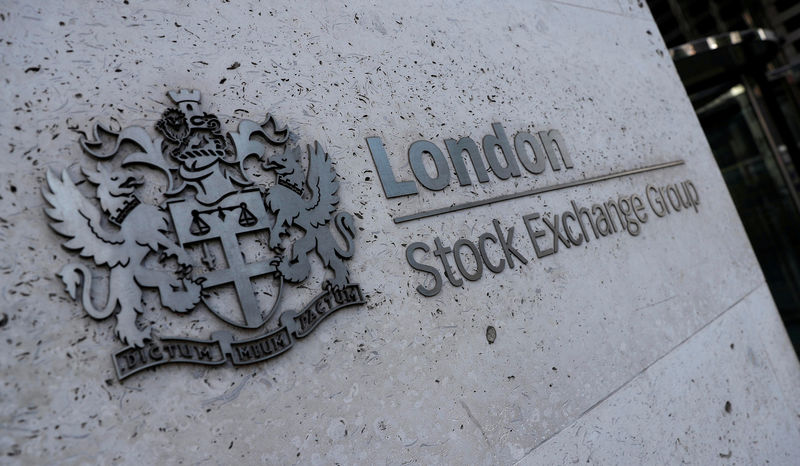By Muvija M and Yadarisa Shabong
(Reuters) - London's FTSE 100 tumbled to a six-month low as China's warning to counter the latest U.S. tariffs fanned trade tensions, while the more domestically focussed midcap index fared better in comparison, amid investors' hopes of averting a no-deal Brexit.
The FTSE 100 index (FTSE) shed 1.1%, lagging its European peers, with losses led by oil majors and financial stocks.
Shell (L:RDSa), the largest company on the index by market value, was the biggest drag with a 3.2% drop as the stock traded ex-dividend, while crude prices also fell. [O/R]
While the FTSE 250 index (FTMC) earlier hit a near seven-month low, the index clawed back some of the early losses to close 0.5% lower on the back of a rise in sterling.
Gains for the local currency was brought on by news that the opposition Labour Party was mounting a bid to bring down Prime Minister Boris Johnson and stop him taking Britain out of the EU without a deal.
However, global trade tensions were very much in play after China vowed retaliation against the latest U.S. tariffs on $300 billion of Chinese goods. The fears were briefly kept in check earlier in the week when the Trump administration delayed tariffs on some of the goods.
China's reaction on Thursday dragged an index of miners (FTNMX1770) down 2% to its lowest since January over concerns about global demand amid the painful trade war.
Blue-chip stocks trading ex-dividend, such as HSBC (L:HSBA) and pension buyout specialist Phoenix Group (L:PHNX) also weighed on the index, while fears of a recession persisted with the Gilt yield curve remaining inverted on Thursday.
"That (drop in financial stocks) isn't a surprise given the compression in the UK government bond yields, and bank's profitability is usually hit in lower interest rate environments," CMC Markets analyst David Madden said.
Both UK indexes had incurred steep losses in the previous session as investors rushed to dump risky assets after the 10-year bond yields fell below two-year equivalents for the first time since the financial crisis.
If losses hold, the FTSE 100 would suffer its biggest monthly fall in more than seven years.
Utilities and tobacco stocks British American Tobacco (L:BATS) and Imperial Brands (L:IMB) eked out gains as investors rushed to the so-called defensive stocks.
A warning from Asda, the British supermarket unit of retail giant Walmart (N:WMT), that Brexit uncertainty was affecting its customers took down shares in Just Eat (L:JE), Sainsbury's (L:SBRY) and Tesco (L:TSCO).
Among midcaps, online trading platform Plus500 (L:PLUSP) surged 9.6% after some of its top executives bought shares in the company.
Kaz Minerals (L:KAZ) slumped 15% after the miner took a cautious stance on the short-term outlook for the copper market amid concerns over the prolonged Sino-U.S. trade war and a slowdown in China.

AIM-listed Burford Capital (L:BURF), the litigation financing specialist caught in a stand-off with short-seller Muddy Waters, jumped 13% after it appointed a new finance chief.